- Home
- Bobby Akart
Nuclear Winter First Strike Page 8
Nuclear Winter First Strike Read online
Page 8
“Okay. Okay. Please settle down, everyone,” said Mike as the complete detective contingent for the sheriff’s department gathered in the large conference room at the administration building in Key West. “We’re joined today by a couple of familiar faces for those who were involved in the cruise ship slaying a few years ago. Rodriguez and Lively with the Forensic Science Program within the FDLE have come down to lend an assist.”
The detectives acknowledged the two scientists, and Mike returned to the lectern. He’d powered up the wall-mounted monitors that flanked him. The second victim’s image filled the screens. He explained what he knew so far.
“Dade county provided us this mug shot of Mr. Marty Kantor during a slightly better time. Through some pretty good detective work by uniformed deputies, one of the severed fingers was found in the hammocks. Kantor was apparently a heavy meth user and an infrequent visitor of the dentist, so dental records weren’t much help. However, the discovery of an abandoned car together with the single print enabled us to make the positive ID.”
“The mother’s car?” asked one of the detectives who’d reviewed the file.
“Yes. Mrs. Kantor apparently died of a drug overdose in her home many weeks ago. I drove up to Hialeah to join Dade County detectives as they entered the Kantor home. We found her decaying body wrapped in her bedding on the floor. I suspect Marty was collecting his mother’s welfare checks to buy drugs.”
Another detective raised his hand. “Any indication of why he came to the Keys? Key West, in particular?”
“Unknown,” replied Mike. “We’re going to assign some of you to liaison with Dade County to canvass Kantor’s neighborhood in Hialeah. You’ll also be responsible for scouring the internet, social media sites, etc.”
“He doesn’t look like an Instagram influencer,” quipped one of the detectives, drawing a laugh. Mike wasn’t amused. Granted, Kantor was likely a piece of crap. However, he was a human being and a murder victim.
“You never know what leads a person to be the victim of a brutal murder,” he said in a disdainful tone. “He is now our second vic in as many weeks, and the MOs are closely matched other than the actual murder weapon. The coroner was able to extract the knife blade from his sternum. It’s part of a spring-assisted knife made by SOG. I did a little checking and found it is sold in Walmart. We’ll need someone to run down that lead.”
“Are we going to publish his image in the paper? See if anyone recognizes him?”
“Yes, tomorrow. In the meantime, we’re gonna hit the streets in the area where his car was found. Try hotels and hostels. Bars and restaurants. Public places first before we go door to door. We don’t have the manpower to hit all possible locations at once, and if we truly have a serial killer on our hands, he might be planning to kill again in the next week or so.”
“Just as Fantasy Fest ramps up,” lamented one of the detectives.
Fantasy Fest was by far the wildest gathering of partiers in the Florida Keys. The last two weeks of October attracted thousands of revelers for a hedonistic warm-up to Halloween. Originally developed to draw travelers during the slower tourist period between Labor Day and Christmas, Fantasy Fest drew over a hundred thousand people from around the world. Events included the Royal Coronation Ball where two locals are crowned Conch King and Queen, a street fair, pet masquerade contests, and the selection of the Fantasy Fest drag queen.
“Here’s why we have to hit the streets running,” said Mike. “Fantasy Fest will bring more and more people into the Keys who weren’t here at the time of the first two murders. It expands the number of people we have to question unnecessarily. It also gives the murderer lots of options to choose from for his next vic.”
“What about a profiler?”
Mike bristled at the question and the subtle insinuation. Despite the fact that he’d been the lead homicide detective for the MCSD for more than a decade, obviously some within the ranks didn’t think he was up to the task.
“Let’s gather some evidence and hunt down these leads. That will help this department and any others who are called upon to help. If there’s nothing else, you all have your assignments. Let’s find this guy before he kills again.”
Chapter Twelve
Saturday, October 19
Home of Peter Albright
Falls Church, Virginia
Peter lived in a modest condominium in Falls Church, Virginia, about ten miles from the Harry S. Truman Building, where the State Department was located. The Washington Times offices were another ten miles past the Capitol grounds in northeast Washington. He went there once in a while, mainly during those rare periods of time that the secretary of state remained in DC.
Peter wasn’t interested in living inside the beltway like many of his counterparts. He grew up in the quiet and serenity of Driftwood Key. There was nothing comparable in the area unless he could find a place that happened to be on the Potomac River, which he wouldn’t be able to afford.
He didn’t need a fancy place to hang his hat. He was rarely home thanks to being attached to one of the most prolific travelers to occupy the leadership position in the State Department in many administrations. His place was small but quiet. His refrigerator remained empty except for a handful of condiments and lots of Hurricane Reef beer that he ordered online from their brewery near Miami. It was a little taste of the Keys to go with his dinner of choice, a BBQ chicken pizza made by California Pizza Kitchen.
When he found his way to the local Harris Teeter, his shopping cart screamed bachelor. Red Bull. Pretzels. Several bottles of Jack Daniel’s Honey Barbecue sauce and a few frozen pizzas from California Pizza Kitchen to dip into it. If he was gonna be in town for more than a couple of days, he’d splurge on a box of Entenmann’s doughnuts.
With his horrific eating habits, Peter could’ve easily packed on the pounds. However, he was fortunate to have his father’s genetics and his mother’s love for running. Every morning, without fail, Peter would strap on his Asics running shoes and pound the pavement. He’d set his Apple AirPods in place and pick out a couple of podcasts to listen to. Or he’d select the playlist full of beach songs performed by his favorite country music performers.
Considering the strain placed on his body from traveling coupled with a diet that was more college frat boy than adult journalist, Peter remained well-toned and healthy.
He was exhausted and looked forward to crashing in his own bed for a change. He’d popped open a beer and mindlessly surfed through the cable news channels to see footage of the aftermath of the terrorist attacks. A couple of the networks had created graphics quoting him and even used his picture to put a face with the quotes. It was a proud moment for him, although he couldn’t relish it. He was genuinely glad to be alive.
Once his pizza was ready, he cut it up and poured a small mound of barbecue sauce in the middle of the plate. It was a routine he’d repeated a hundred times during his years in Washington. To some, it might exhibit loneliness. One could easily feel sorry for the young man who’d devoted his life to journalism. For Peter, eating was the least important part of his daily life. He enjoyed being in the thick of international affairs, even if it was as a reporter looking from the outside in.
He was on his third slice when his landline phone rang in the kitchen. Upon his return, he’d checked his voicemails and found numerous messages from television and radio producers hoping to interview him the next day. He didn’t take the time to write them down. The late evening call was unexpected, but most likely a persistent producer. He’d reward them with the first opportunity to score an exclusive.
Peter rose from the couch and headed to the kitchen. As he did, his personal cell phone rang. Then, almost simultaneously, the secure phone assigned to him as a member of the State Department’s embed press pool chirped as well. His tiny condo was filled with a variety of ringing sounds, the most annoying of which was the landline. It, however, was the least important.
Peter raced back around the couch and grabbe
d the secure cell from State.
“Hello.”
“Peter, it’s Jenna.”
“Hey. Um, wait. How’d you get this number?”
“It doesn’t matter. Listen—”
Peter’s eyes caught a glimpse of the television. He started shouting, “Oh shit, oh shit, oh shit.”
“Peter! Peter!” Jenna’s voice was coming through the phone’s receiver.
“Yeah, I’m here. I see it on the news.”
“Listen to me,” she continued.
Peter turned his focus back to his longtime friend. She spoke for a moment, and then he pulled the phone away from his ear. He muttered the only words he could seem to grasp at the moment.
“Oh shit.”
Chapter Thirteen
Saturday, October 19
Driftwood Key
After a long day, Mike and Jessica reached out to Hank by phone. He said he had a bungalow available if they’d like to come have a few mojitos and crash for the night. The childless-by-choice couple readily accepted and were treated to a hearty meal by Phoebe. The rest of the evening was spent on the beach, listening to the bongo drums and the steel drum band while a small bonfire shot flames into the sky near the water’s edge.
Hank was a social cigar smoker. On those rare occasions he was able to dig his toes in the sand and consume an adult beverage, he enjoyed lighting up his favorite cigar—the Island Jim. The torpedo-shaped smoke had been his father’s favorite, and Hank had acquired a taste for them when he used to sneak them out of the humidor as a teen. Shaped like a #2 pencil, the label featured the cartoonish image of a man who seemingly spent his entire life on the beach. Hank liked it for its rich, chocolatey flavor.
“Here’s the thing, Hank,” began Mike. “We don’t have enough warm bodies to beat the streets. Monroe County is not geared up for a murder investigation like this one. Miami-Dade has offered assistance, and of course, the FDLE is chomping at the bit to join in.”
Mike, who rarely smoked cigars, always enjoyed one when he was hanging out with his older brother. He’d always looked up to Hank as a kid and tried his best to hang with the big dogs, as his mother put it, when he was growing up. Seven years younger, Mike emulated many of Hank’s mannerisms and traits although the two men differed in career paths. Mike always wanted to be a cop, and Hank always wanted to be Island Jim. Hank kept a box of Rocky Patel cigars in the humidor for Mike. The Edge, as the cigar was called, was much milder than most smokes. It provided a nice, robust flavor without the strong knockout punch that most cigars hit the casual smoker with.
Hank took a long draw on his cigar and allowed the smoke rings to float into the night until they joined the flames from the bonfire.
“So let ’em,” said Hank as he sipped on a mojito. The Driftwood Key Inn was known for several signature traits or amenities. In addition to being the only resort on its own private island, guests raved about their signature cocktail, the mojito.
The Florida Keys, thanks to Jimmy Buffett and his Margaritaville restaurant in Key West, was often associated with margaritas. Margaritas, a tequila-infused lime drink, was first introduced near Tijuana, Mexico, in the late 1930s. Associating it with island living was a direct result of Buffett, his music, and extensive branding.
Since the Florida Keys were first inhabited, and probably because of their close proximity to Cuba, the mojito cocktail had been the drink of choice. Originally a medicinal drink used to curb disease in Havana, it was created with bootleg rum mixed with readily available mint, lime juice, and sugar cane syrup.
The Albright family, like the other early settlers of the Florida Keys, had imbibed in the tart yet tasty drink since the turn of the nineteenth century. At the Driftwood Key Inn, they followed the recipe used by most, except the Albrights insisted on using key limes grown on the property and white rum made by Havana Club, a Cuban rum now available because the embargo against the nation had been lifted.
While Hank and Jessica enjoyed their mojitos, Mike, always the exception, sipped a Jack Black on the rocks.
Hank turned to Jessica. “How about you? Anything exciting on the water today?”
As part of the Water Emergency Team, Jessica had to respond to all manner of emergencies, from people who’d been injured to divers in distress.
“You know, it’s hard to compare what I do to Mike. I’ve watched him tackle these murder cases and take them on personally as if he were a family member of the dead person. I don’t have that kind of excitement.
“Today, I had to respond to a family on the water who thought their father was having a heart attack or a stroke. We raced out there only to find out he was toasted inside and out. It was nothing more than pickled innards and dehydration.”
Hank nodded his understanding of where she was coming from. “These people are here to have a good time. They wanna drink, get some sun, and do all the things they can’t do up in Illinois or Ohio or Vermont. We try to politely warn them, and while they’re on our property, Jimmy and the others are able to let them know when they’ve had too much sun.”
The three of them sat quietly for a moment. Mike hoisted himself out of his beach chair to toss a couple more logs on the fire. He spoke to Hank as he returned to his chair.
“So, I was talking to Phoebe while we ate in the kitchen. She tells me that you’ve met a lady friend.”
Hank pulled the bill of his Tommy Bahama Relax hat down over his eyes as he shook his head from side to side. The formerly white hat was stained by years of wear and multiple washings in the salty sea.
“Geez, you people are relentless!” exclaimed Hank. “I didn’t meet a lady friend. She’s a guest of the hotel.”
“A special guest is what Phoebe told us,” added Jessica.
“Phoebe talks too much.”
“Tell us about her,” said Jessica.
“What’s to tell?” Hank asked rhetorically. “She’s here with her three sisters for an annual beach vacation. They stay at different places each year, and this year they chose the inn.”
“She’s a Washington big shot is what Sonny said,” interjected Mike.
“Damn. Sonny talks too much as well.”
“C’mon, Hank, she is a big deal, right?” asked Mike.
“Nah. Well, yeah. She’s secretary of agriculture.”
“Come on, Hank,” said Jessica. “She’s in the president’s cabinet. That’s pretty damn cool. So you two have hit it off?”
“Yeah, I suppose you could say that. I mean, we’re friendly, and she’s easy to talk to. Nothing like the politicians and government officials Peter tells us about.”
“How is my nephew?” asked Mike. “I got a text saying he wasn’t blown up in Abu Dhabi. Odd but good news, I guess.”
“A little too close for comfort, Mike. He was more in the thick of it than what was relayed in the news. Peter was lucky, but he made his own luck by some quick thinking.”
Hank finished his mojito and glanced over at Jessica’s glass to see if she was ready for another one. She noticed his interest and finished off her drink, waving the glass with a smile as she swallowed.
Hank rose and took her glass. “Michael? Ready?”
“Yeah, I’ll walk with ya.” Hank reached out with his free hand and clasped his brother’s to help hoist him off the beach chair. As he did, he heard shouting coming from the main house.
“Mr. Hank! Mr. Hank! Come quick. It’s Peter on the phone!”
The calm of the evening had just been shattered.
Chapter Fourteen
Saturday, October 19
Tehran, Iran
In those first few moments, they were dumbstruck. A million pairs of eyes fixed in a thousand-yard stare—nerve endings unfeeling, insensitive to what had happened.
Most just stood there. Mouth agape. Barely able to breathe as they comprehended what was happening. Others released a primal, spine-chilling scream before running in all directions in search of safety.
To observe their bodies, arms ou
tstretched, flying away from where they once stood, would make you think your mind was playing tricks on you. Their fingers would begin to melt like a wax figurine in a much too hot enclosed room.
Then the rest of their body seemingly disappeared, evaporated into a cloud of dust, leaving no trace as it mixed with the sands of Persia.
The screaming would continue. Shrieking. Moaning. Agony expressed in any manner of ways.
Hundreds of thousands of victims at once. Maybe millions. Their fragile corpses, what was left of them anyway, strewn about amid a sea of shattered concrete and glass. A wasteland dotted with the shells of buildings, orphaned walls, and stairways leading to nowhere.
And then as a punctuation mark—a great, big exclamation point—a massive fireball would rise high into the stratosphere, carrying with it the bowels and guts of the once proud city and its inhabitants. A massive act of cremation of the dead corpses and the homes where they lived.
This was Tehran after the Israeli nuclear counterstrike. The Supreme Leader of Iran, the highest political and religious authority of the Islamic Republic, together with his Ayatollah advisers, was ready to administer justice. He needed to punish the Jews. Once that succeeded, he would turn his ire on the Americans. Death to Israel! Death to America! A mantra that was repeated a million times a day in Tehran.
Except he miscalculated.
He chose to believe the words of the scientists who’d recently been killed at Isfahan when they said their first-strike capability against Israel would be successful. He chose to believe his admired generals within the Iranian Revolutionary Guard, who assured him they had the capability to defend Iran from Israel’s counterattack. He chose to trust Allah, who told him those who might perish would rise to face the great resurrection followed by guaranteed admittance into Heaven.

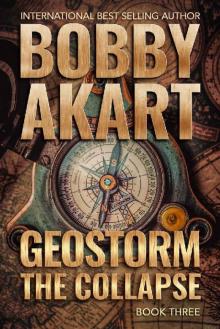 Geostorm The Collapse: A Post Apocalyptic EMP Survival Thriller (The Geostorm Series Book 3)
Geostorm The Collapse: A Post Apocalyptic EMP Survival Thriller (The Geostorm Series Book 3)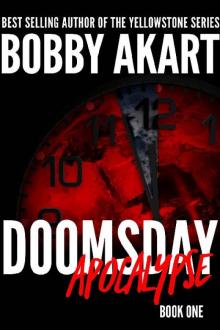 Doomsday Apocalypse
Doomsday Apocalypse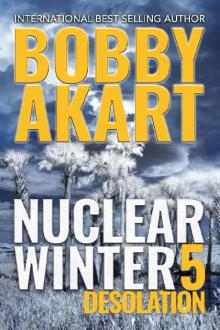 Nuclear Winter Desolation: Post Apocalyptic Survival Thriller (Nuclear Winter Series Book 5)
Nuclear Winter Desolation: Post Apocalyptic Survival Thriller (Nuclear Winter Series Book 5)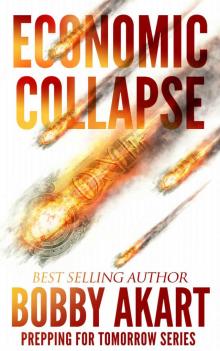 Economic Collapse (Prepping for Tomorrow Book 2)
Economic Collapse (Prepping for Tomorrow Book 2)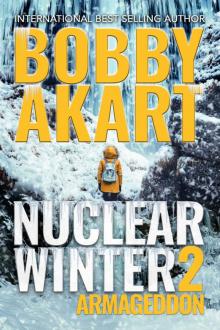 Nuclear Winter Armageddon
Nuclear Winter Armageddon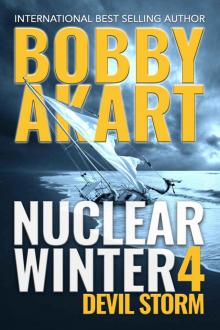 Nuclear Winter Devil Storm
Nuclear Winter Devil Storm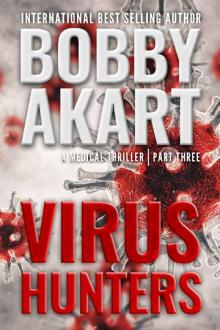 Virus Hunters 3: A Medical Thriller
Virus Hunters 3: A Medical Thriller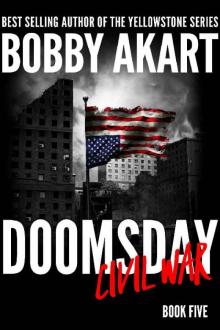 Doomsday Civil War: A Post-Apocalyptic Survival Thriller (The Doomsday Series Book 5)
Doomsday Civil War: A Post-Apocalyptic Survival Thriller (The Doomsday Series Book 5)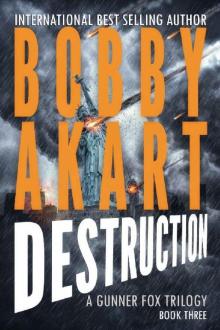 Asteroid Destruction
Asteroid Destruction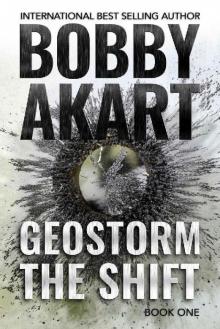 Geostorm the Shift
Geostorm the Shift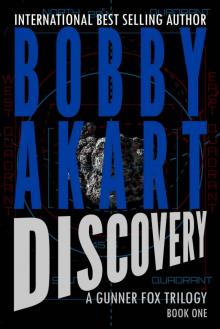 Asteroid Discovery
Asteroid Discovery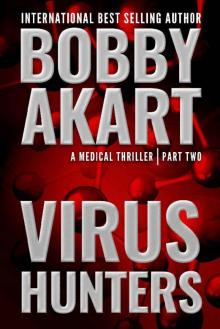 Virus Hunters 2: A Medical Thriller
Virus Hunters 2: A Medical Thriller Geostorm The Shift: A Post-Apocalyptic EMP Survival Thriller (The Geostorm Series Book 1)
Geostorm The Shift: A Post-Apocalyptic EMP Survival Thriller (The Geostorm Series Book 1)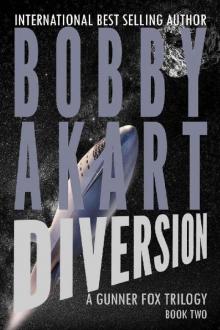 Asteroid Diversion
Asteroid Diversion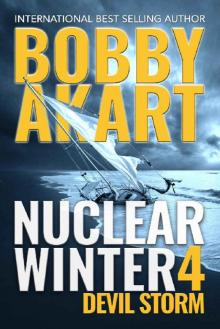 Nuclear Winter Devil Storm: Post Apocalyptic Survival Thriller (Nuclear Winter Series Book 4)
Nuclear Winter Devil Storm: Post Apocalyptic Survival Thriller (Nuclear Winter Series Book 4)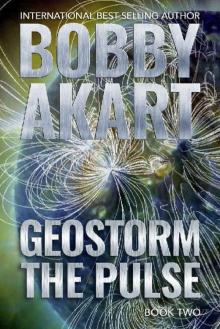 Geostorm The Pulse: A Post Apocalyptic EMP Survival Thriller (The Geostorm Series Book 2)
Geostorm The Pulse: A Post Apocalyptic EMP Survival Thriller (The Geostorm Series Book 2)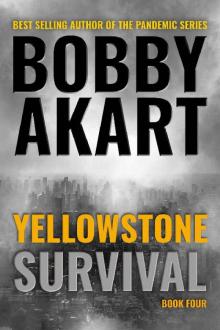 Yellowstone: Survival: A Post-Apocalyptic Survival Thriller (The Yellowstone Series Book 4)
Yellowstone: Survival: A Post-Apocalyptic Survival Thriller (The Yellowstone Series Book 4)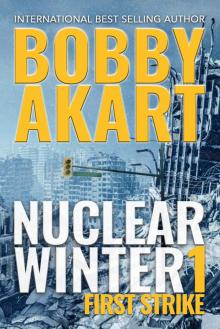 Nuclear Winter First Strike: Post-Apocalyptic Survival Thriller
Nuclear Winter First Strike: Post-Apocalyptic Survival Thriller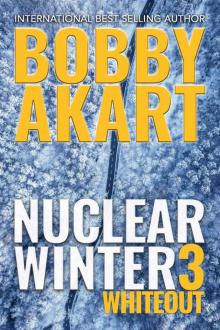 Nuclear Winter Whiteout
Nuclear Winter Whiteout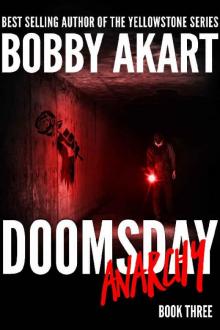 Doomsday Anarchy
Doomsday Anarchy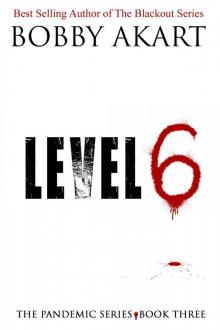 Pandemic: Level 6: A Post Apocalyptic Medical Thriller Fiction Series (The Pandemic Series Book 3)
Pandemic: Level 6: A Post Apocalyptic Medical Thriller Fiction Series (The Pandemic Series Book 3) Martial Law
Martial Law Odessa Reborn: A Terrorism Thriller (Gunner Fox Book 4)
Odessa Reborn: A Terrorism Thriller (Gunner Fox Book 4)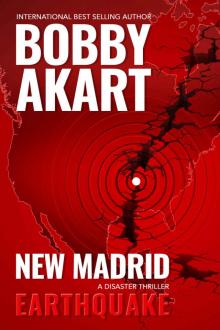 New Madrid Earthquake
New Madrid Earthquake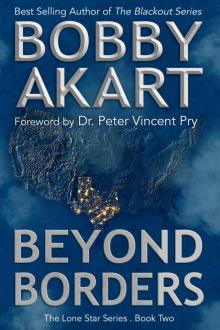 Beyond Borders: Post Apocalyptic EMP Survival Fiction (The Lone Star Series Book 2)
Beyond Borders: Post Apocalyptic EMP Survival Fiction (The Lone Star Series Book 2)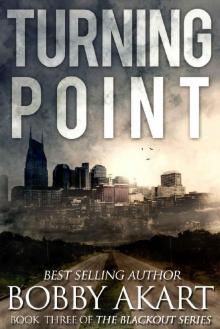 The Blackout Series (Book 3): Turning Point
The Blackout Series (Book 3): Turning Point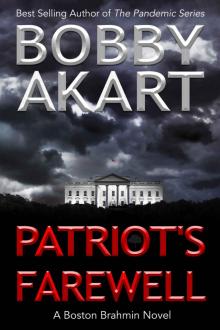 Patriot's Farewell: A Political Thriller Fiction Series (Boston Brahmin Political Thrillers Book 7)
Patriot's Farewell: A Political Thriller Fiction Series (Boston Brahmin Political Thrillers Book 7)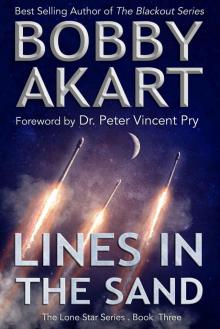 Lines in the Sand_Post Apocalyptic EMP Survival Fiction
Lines in the Sand_Post Apocalyptic EMP Survival Fiction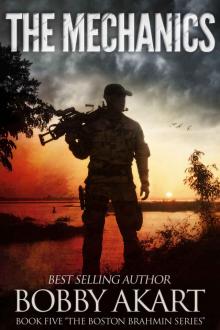 The Mechanics: A Post-Apocalyptic Fiction Series
The Mechanics: A Post-Apocalyptic Fiction Series The Loyal Nine
The Loyal Nine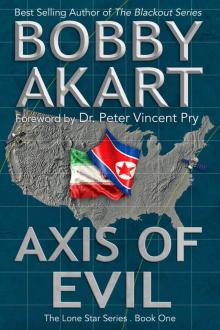 Axis of Evil
Axis of Evil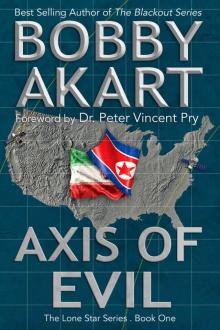 Axis of Evil: Post Apocalyptic EMP Survival Fiction (The Lone Star Series Book 1)
Axis of Evil: Post Apocalyptic EMP Survival Fiction (The Lone Star Series Book 1)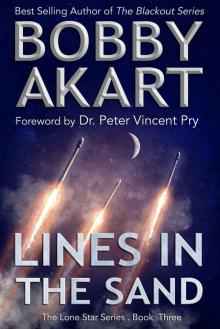 Lines in the Sand: Post Apocalyptic EMP Survival Fiction (The Lone Star Series Book 3)
Lines in the Sand: Post Apocalyptic EMP Survival Fiction (The Lone Star Series Book 3) Odessa Strikes
Odessa Strikes The Blackout Series (Book 4): Shiloh Ranch
The Blackout Series (Book 4): Shiloh Ranch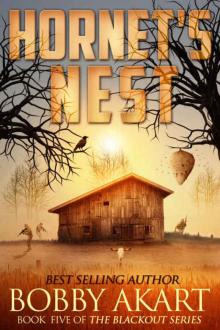 Hornet's Nest: A Post Apocalyptic EMP Survival Fiction Series (The Blackout Series Book 5)
Hornet's Nest: A Post Apocalyptic EMP Survival Fiction Series (The Blackout Series Book 5)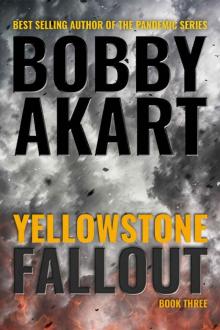 Yellowstone: Fallout: A Post-Apocalyptic Survival Thriller (The Yellowstone Series Book 3)
Yellowstone: Fallout: A Post-Apocalyptic Survival Thriller (The Yellowstone Series Book 3)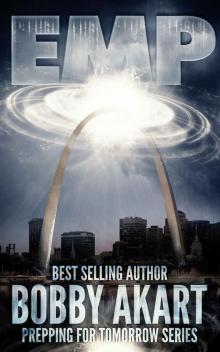 Electromagnetic Pulse
Electromagnetic Pulse Texas Strong: Post Apocalyptic EMP Survival Fiction (The Lone Star Series Book 4)
Texas Strong: Post Apocalyptic EMP Survival Fiction (The Lone Star Series Book 4)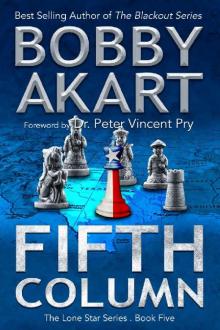 Fifth Column_Post Apocalyptic EMP Survival Fiction
Fifth Column_Post Apocalyptic EMP Survival Fiction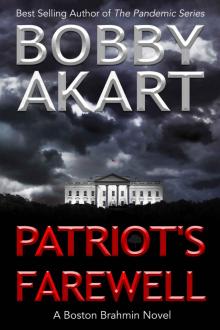 Patriot's Farewell
Patriot's Farewell Texas Strong_Post Apocalyptic EMP Survival Fiction
Texas Strong_Post Apocalyptic EMP Survival Fiction Pandemic: The Innocents: A Post-Apocalyptic Medical Thriller Fiction Series (The Pandemic Series Book 2)
Pandemic: The Innocents: A Post-Apocalyptic Medical Thriller Fiction Series (The Pandemic Series Book 2) Shiloh Ranch: A Post Apocalyptic EMP Survival Fiction Series (The Blackout Series Book 4)
Shiloh Ranch: A Post Apocalyptic EMP Survival Fiction Series (The Blackout Series Book 4)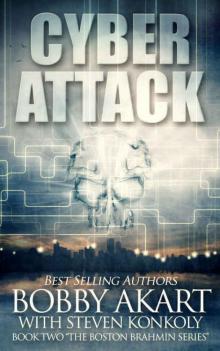 Cyber Attack
Cyber Attack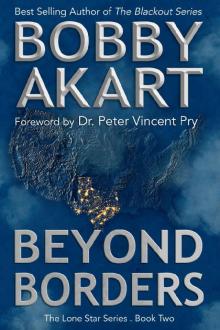 Beyond Borders
Beyond Borders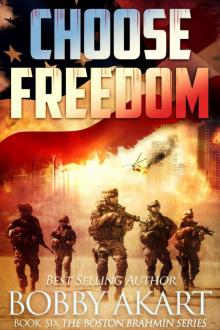 Choose Freedom: A Post-Apocalyptic Fiction Series (The Boston Brahmin Book 6)
Choose Freedom: A Post-Apocalyptic Fiction Series (The Boston Brahmin Book 6)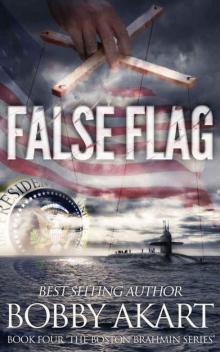 False Flag
False Flag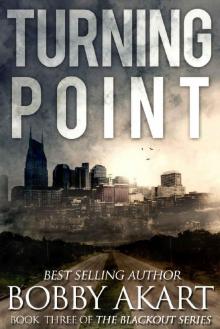 Turning Point: A Post Apocalyptic EMP Survival Fiction Series (The Blackout Series Book 3)
Turning Point: A Post Apocalyptic EMP Survival Fiction Series (The Blackout Series Book 3)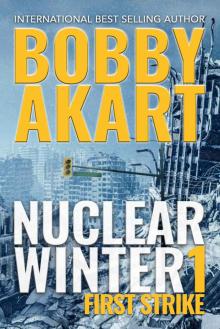 Nuclear Winter First Strike
Nuclear Winter First Strike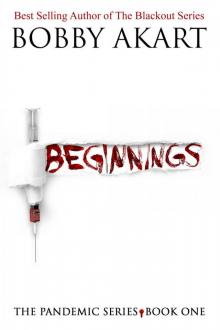 Pandemic: Beginnings: A Post-Apocalyptic Medical Thriller Fiction Series (The Pandemic Series Book 1)
Pandemic: Beginnings: A Post-Apocalyptic Medical Thriller Fiction Series (The Pandemic Series Book 1)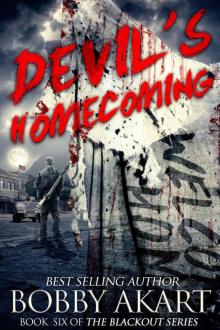 Devil's Homecoming: A Post Apocalyptic EMP Survival Fiction Series (The Blackout Series Book 6)
Devil's Homecoming: A Post Apocalyptic EMP Survival Fiction Series (The Blackout Series Book 6)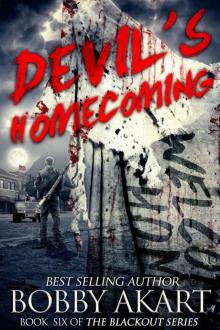 The Blackout Series (Book 6): Devil's Homecoming
The Blackout Series (Book 6): Devil's Homecoming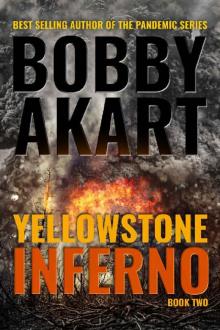 Yellowstone: Inferno: A Post-Apocalyptic Survival Thriller (The Yellowstone Series Book 2)
Yellowstone: Inferno: A Post-Apocalyptic Survival Thriller (The Yellowstone Series Book 2)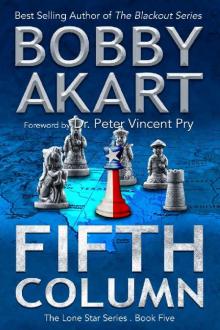 Fifth Column: Post Apocalyptic EMP Survival Fiction (The Lone Star Series Book 5)
Fifth Column: Post Apocalyptic EMP Survival Fiction (The Lone Star Series Book 5)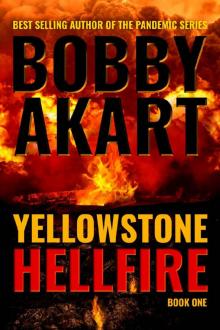 Yellowstone: Hellfire: A Post-Apocalyptic Survival Thriller (The Yellowstone Series Book 1)
Yellowstone: Hellfire: A Post-Apocalyptic Survival Thriller (The Yellowstone Series Book 1) The Blackout Series (Book 2): Zero Hour
The Blackout Series (Book 2): Zero Hour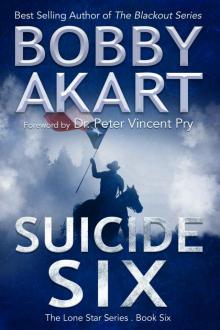 Suicide Six: Post Apocalyptic EMP Survival Fiction (The Lone Star Series Book 6)
Suicide Six: Post Apocalyptic EMP Survival Fiction (The Lone Star Series Book 6)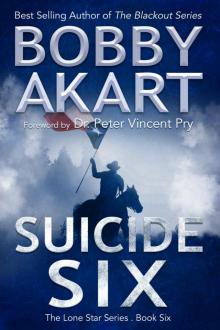 Suicide Six_Post Apocalyptic EMP Survival Fiction
Suicide Six_Post Apocalyptic EMP Survival Fiction Zero Hour: A Post-Apocalyptic EMP Survival Fiction Series (The Blackout Series Book 2)
Zero Hour: A Post-Apocalyptic EMP Survival Fiction Series (The Blackout Series Book 2)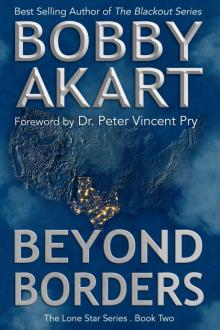 Beyond Borders_Post Apocalyptic EMP Survival Fiction
Beyond Borders_Post Apocalyptic EMP Survival Fiction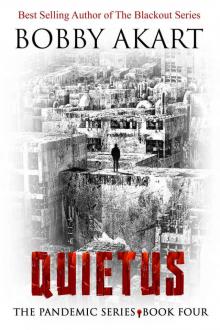 Pandemic: Quietus: A Post-Apocalyptic Dystopian Fiction Series (The Pandemic Series Book 4)
Pandemic: Quietus: A Post-Apocalyptic Dystopian Fiction Series (The Pandemic Series Book 4)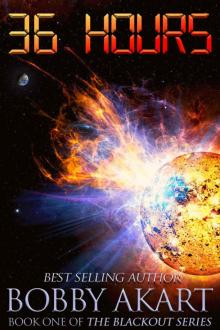 36 Hours: A Post-Apocalyptic EMP Survival Fiction Series
36 Hours: A Post-Apocalyptic EMP Survival Fiction Series Cyber Warfare
Cyber Warfare